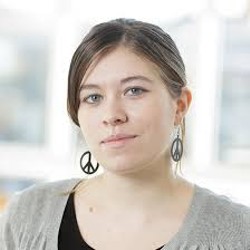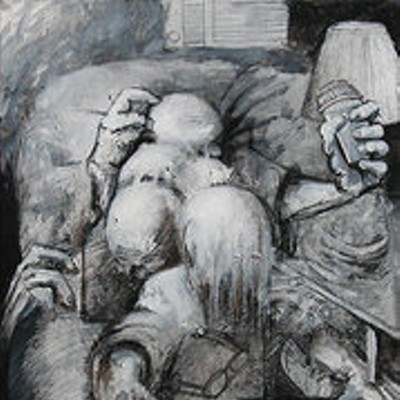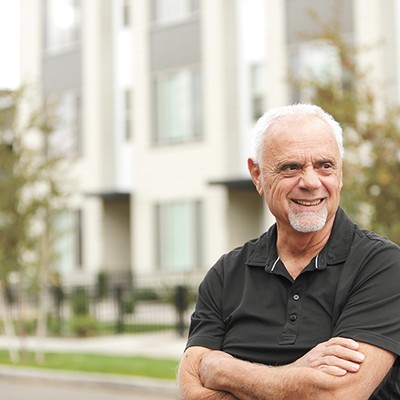Thursday, August 14, 2014
White people playing “devil’s advocate” are part of the problem
The devil really doesn’t need any more advocates. It seems that whenever a news story breaks that manifests the underlying imbalances in our society, beneficiaries of that imbalance come out of the woodwork to defend the status quo by derailing discussion, postulating unhelpfully about hypothetical situations, and generally missing the forest for the trees. Reactions to revelations of sexual assault on college campuses in which women — the overwhelming targets of such violence — are blamed for their attacks by a group overwhelmingly comprised of men who have not been sexually assaulted are one recent example of this phenomena. Another is the portrayal of Palestinian and Gazan people during the most recent siege, where the responsibility for ending violence is bizarrely placed on the displaced and 60-years-occupied population in the West Bank and Gaza, rather than on the military aggressors in Israel. This line of thought violates not only common sense, but also international law.
Now, we can observe the same pattern unfolding in news stories and on comment threads everywhere in the wake of racially-tinged police violence and a community’s reaction to it in Ferguson, Missouri. From the first protests where multiple media outlets mistakenly printed that protesters were heard chanting “Kill the police” when they were in fact chanting “No justice, no peace”, to the dozens of tangents that distract from the fact that yet another unarmed, black young person has been killed by police under questionable circumstances. Just as the bulk of those blaming women for sexual assault are men, and the people criticizing Palestinians for not being submissive enough to occupation are people who have never lived under occupation, mostly white and especially white middle-class people seem to be levying most of the criticism of Michael Brown’s life before he was killed last week or of his community’s reaction to yet another of its children dying in such a manner.
The rabid denial that racism is a major part of U.S. institutions and daily life belies how ingrained it is in society and how effectively it entrenches itself. Evidence of white privilege is everywhere, yet pundits and bloggers amass an audience who believes that there is an honest to goodness “war on whites” or the more subtle arguments that “political correctness” is ruining lives everywhere. You don’t see racism, you say? That’s because, if you are a white person reading this, you are not meant to see it. The privileges that come with being part of a racially favored class in society run in the background as a default in your life. If you think that’s nonsense that I just made up for fun, how do you explain the discrepancy between policing of and reaction to open carry “activists,” who are mostly white, and the frequent pre-emptive violence taken against unarmed people of color? This, despite the fact that mass shootings which have so captivated the American subconscious have been carried out by white males. Yet, a white man can walk into a shopping mall with an assault rifle and be considered a possibly goofy, but ultimately nonthreatening, advocate for rights.
Any literate reading of history shows that racism is both institutionalized in this country and also far from over. As the protesters demanded in Ferguson, there cannot be peace without justice. Justice doesn’t demand that we create two equal sides in every conflict. It doesn’t demand that we seek justification for police or other protectors of the status quo when they unleash the violence that is normal in an unequal system. It demands that we demolish the systems that entrench inequality and eradicate the problems at their roots. Without equality, we can’t expect peace. The least that white people in this country can do when black Americans stand up and say “Stop killing our sons” is to not argue against that demand. To not seek out reasons why maybe their sons deserved it. To stop playing devil’s advocate in every argument. What might be a purely academic thought exercise for you, or a what-if scenario, is and has been real life for people at the receiving end of daily violence.
By listening to what the residents of Ferguson are saying about systematic, racialized violence by police and ongoing inequality, we can begin to identify solutions. We can’t expect police to police themselves when we have so many stories like Michael Brown’s to show us that it isn’t a problem of a few bad apples spoiling the bunch. We can’t expect solutions from the same institutions that have helped to keep racism, colonialism and sexism alive and thriving for centuries. These institutions have only changed at the demand of the people at the receiving end of repression, and it’s helped historically when people who benefit from the violent status quo break ranks and show basic empathy and solidarity with people directly in the struggle. If you aren’t helping more people to be treated like human beings, or if you are actively dehumanizing people and trivializing the real violence in their lives, then you are part of the problem.
If you want to help our society move toward equality, there are many ways to do so. The first step is to listen. To join the conversation locally, come to a meeting put on by Don’t Shoot tonight at Liberty Park at 7:30 pm, followed by a vigil to show solidarity with the people of Ferguson at 9 pm.
Taylor Weech, who hosts the weekly public affairs program Praxis on KYRS-FM, is a Spokane writer and activist. She shares writing, photography and her podcast at truthscout.net.
Now, we can observe the same pattern unfolding in news stories and on comment threads everywhere in the wake of racially-tinged police violence and a community’s reaction to it in Ferguson, Missouri. From the first protests where multiple media outlets mistakenly printed that protesters were heard chanting “Kill the police” when they were in fact chanting “No justice, no peace”, to the dozens of tangents that distract from the fact that yet another unarmed, black young person has been killed by police under questionable circumstances. Just as the bulk of those blaming women for sexual assault are men, and the people criticizing Palestinians for not being submissive enough to occupation are people who have never lived under occupation, mostly white and especially white middle-class people seem to be levying most of the criticism of Michael Brown’s life before he was killed last week or of his community’s reaction to yet another of its children dying in such a manner.
The rabid denial that racism is a major part of U.S. institutions and daily life belies how ingrained it is in society and how effectively it entrenches itself. Evidence of white privilege is everywhere, yet pundits and bloggers amass an audience who believes that there is an honest to goodness “war on whites” or the more subtle arguments that “political correctness” is ruining lives everywhere. You don’t see racism, you say? That’s because, if you are a white person reading this, you are not meant to see it. The privileges that come with being part of a racially favored class in society run in the background as a default in your life. If you think that’s nonsense that I just made up for fun, how do you explain the discrepancy between policing of and reaction to open carry “activists,” who are mostly white, and the frequent pre-emptive violence taken against unarmed people of color? This, despite the fact that mass shootings which have so captivated the American subconscious have been carried out by white males. Yet, a white man can walk into a shopping mall with an assault rifle and be considered a possibly goofy, but ultimately nonthreatening, advocate for rights.
Any literate reading of history shows that racism is both institutionalized in this country and also far from over. As the protesters demanded in Ferguson, there cannot be peace without justice. Justice doesn’t demand that we create two equal sides in every conflict. It doesn’t demand that we seek justification for police or other protectors of the status quo when they unleash the violence that is normal in an unequal system. It demands that we demolish the systems that entrench inequality and eradicate the problems at their roots. Without equality, we can’t expect peace. The least that white people in this country can do when black Americans stand up and say “Stop killing our sons” is to not argue against that demand. To not seek out reasons why maybe their sons deserved it. To stop playing devil’s advocate in every argument. What might be a purely academic thought exercise for you, or a what-if scenario, is and has been real life for people at the receiving end of daily violence.
By listening to what the residents of Ferguson are saying about systematic, racialized violence by police and ongoing inequality, we can begin to identify solutions. We can’t expect police to police themselves when we have so many stories like Michael Brown’s to show us that it isn’t a problem of a few bad apples spoiling the bunch. We can’t expect solutions from the same institutions that have helped to keep racism, colonialism and sexism alive and thriving for centuries. These institutions have only changed at the demand of the people at the receiving end of repression, and it’s helped historically when people who benefit from the violent status quo break ranks and show basic empathy and solidarity with people directly in the struggle. If you aren’t helping more people to be treated like human beings, or if you are actively dehumanizing people and trivializing the real violence in their lives, then you are part of the problem.
If you want to help our society move toward equality, there are many ways to do so. The first step is to listen. To join the conversation locally, come to a meeting put on by Don’t Shoot tonight at Liberty Park at 7:30 pm, followed by a vigil to show solidarity with the people of Ferguson at 9 pm.
Taylor Weech, who hosts the weekly public affairs program Praxis on KYRS-FM, is a Spokane writer and activist. She shares writing, photography and her podcast at truthscout.net.
Tags: michael brown , commentators , Comment , Image

















